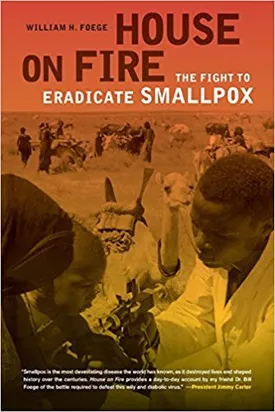William H. Foege
William H. Foege is one of the world’s most influential figures when it comes to public health. A professor emeritus of international health at Emory University, he has been a leader in the field since the 1970s, when he worked as a part of the Centers for Disease Control (CDC). He was instrumental in developing the Global Smallpox Eradication Program and is widely credited with leading the effort to eradicate this ancient disease, which had been plaguing humanity for millennia.
Born in Decatur, Illinois in 1936, Foege trained as a physician and epidemiologist. While studying medicine at Pacific Lutheran University he developed an interest in public health and after graduating in 1959, he embarked on a career in this field. He completed a fellowship in epidemiology at the CDC, then worked as a field epidemiologist in India, Nepal and New Guinea.
In 1973, Foege took a position at the CDC, where he worked in the smallpox eradication program. He developed the strategy known as “surveillance containment,” which involved establishing a tracking system of the disease and using vaccines to contain it within the countries in which it was found. This strategy proved to be so successful that in 1980, the World Health Organization declared that smallpox had been completely eradicated.
In addition to his work on the Global Smallpox Eradication Program, Foege has played an integral role in a number of other public health initiatives. He served as the Executive Director of the Carter Center from 1986 to 1992 and worked with the Bill and Melinda Gates Foundation, leading an effort to reduce the burden of preventable diseases in Africa and other parts of the world.
Foege has published numerous books on public health and is the author of "The History of Global Health". This book offers a comprehensive look at how global health has evolved over the years, as driven by advances in science and technology, the growth of international organizations, and the influence of NGOs and philanthropists. In addition, the book sheds light on key figures and moments in the history of global health, such as the establishment of the Global Smallpox Eradication Program and the founding of theBill and Melinda Gates Foundation, among others.
Foege has been recognized throughout his career for his commendable work in the field of public health. Among his many accolades, he was awarded the Presidential Medal of Freedom in 2012 and has been inducted into the National Academy of Medicine. He has also received honorary degrees from several universities, including Pacific Lutheran University and Emory University.
William H. Foege is truly one of the most influential public health figures of the past century. He has dedicated his life to making the world a healthier place and has been remarkably successful in his endeavors to eradicate deadly diseases and reduce the burden of preventable diseases. His work has saved millions of lives and his impact is felt around the world.

